Winter Break Announcement for Purdue Anvil Team
The UCAR Software Engineering Assembly's Improving Scientific Software Conference returns in April 2026 in Boulder, CO and virtually. Abstract submission is now open for talks, tutorials, and panel discussions.
Registration and the Call for Proposals are open for 2026 Global Open OnDemand Conference! Join us March 9–12, 2026, at the University of Utah for keynotes, talks, BoFs, and tutorials.
Updated guidance about ACCESS user restrictions and some resource providers may have additional limits on international collaborators.
The Texas Advanced Computing Center facilities experienced a site wide power outage at 6:12 am CDT. At this time, admins are on site and working to restore all systems to production.
ACCESS now requires all PIs and users to have a U.S.-based institutional affiliation and a matching institutional email address (personal domains like Gmail or Yahoo are not allowed). Existing allocations remain active, but new requests (including supplements, transfers, and extensions) will be denied if these requirements aren’t met.
Newly launched learning.psc.edu offers self-paced tutorials, quick-start guides for Bridges-2, workflow best practices, and training modules for all experience levels.
Beginning 09/24/2025, TACC is introducing new queue limits on all machines in order to improve fair access and reduce wait times for the majority of users.
The job submission limit will be brought down to 4x the running job limit. Previously this number was 10x.
Ex:
Previous: Queue with a limit of 20 running jobs had a maximum limit of 200 submitted jobs
New: Queue with a limit of 20 running jobs has a maximum limit of 80 submitted jobs
The node limit per queue will remain the same.
Researchers nationwide can now request access to the Rosen Center for Advanced Computing’s (RCAC) new national artificial intelligence (AI) resource, Anvil AI.
Reminder to register for these upcoming NAIRR Pilot webinars! On July 29, explore cutting-edge AI research resources like SambaNova’s SambaCloud and Purdue’s Anvil platform; on July 30, learn from Gil Speyer about leveraging open-source and industry AI tools.
All ACCESS DARWIN Users,
After five years of enabling research and discovery, the University of Delaware will be decommissioning DARWIN resources from ACCESS on October 1, 2025.
Email was sent on June 2, 2025, to all active ACCESS DARWIN award PIs regarding the decommissioning and calling on them to plan for and transition their work off DARWIN. This includes moving all necessary data off the system and transferring any remaining DARWIN allocation SU balances to another resource or back to ACCESS Credits.
Beginning 8:00am Tuesday (6/17/25), all TACC systems will enter a maintenance period and be entirely unavailable. This will impact:
DATE CORRECTION: Stockyard Maintenance will be June 17th - 19th 2025
Starting June 17th, TACC will be performing routine maintenance on all systems that utilize Stockyard. Please note, as Stockyard is connected to all systems, any and all systems will be impacted by this maintenance outage:
Frontera
Lonestar6
Stampede3
Vista

June 2-6, 2025
This is a week-long event at TACC intended to provide in-person training and workshops to train researchers and developers on how to most effectively utilize supercomputing for their projects. In this course we will cover:
- Parallel computing
- CUDA programming
- MPI (beginner and intermediate)
- MPI with containers
- Other HPC tools as well as hands-on labs using TACC resources.
EARLY BIRD PRICING ends 05/23/25

ACCESS has rolled out a powerful new feature for Resource Providers (RPs) called the ACCESS Variable Marketplace. Now RPs can easily set and modify the exchange rate for their resources, with flexibility to increase interest in an underutilized resource or to respond to high demand.
Don't miss this opportunity to connect with the High Throughput Computing community.
You are invited to the third annual Throughput Computing Week (HTC25) from June 2-6 to be held in beautiful Madison, Wisconsin. HTC25 brings together researchers, campuses, science collaborations, facilitators, administrators, government representatives, and professionals interested in high throughput computing to:

Do you know faculty members or Principal Investigators interested in getting involved with ACCESS? Are you interested in contributing your knowledge to help guide the program? Now is your chance to nominate yourself or another experienced individual for the ACCESS Researcher Advisory Board (RAC).

Embedding On-Ramps into a website is as easy as copying and pasting a few lines of Javascript, with most organizations able to implement it independently. One partner noted about the process, “It was so easy!” while another partner called it “seamless.”
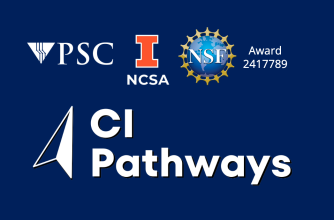
CI Pathways is a cohort-based training program offering learners a guided approach to using CI to enhance their research. You will learn alongside peers and receive expert guidance from seasoned mentors. Participants will have opportunities to build relationships lasting beyond the CI Pathways program.

The number of institutions leveraging On-Ramps is rapidly growing, with the product currently deployed at the Rocky Mountain Advanced Computing Consortium (RMACC), Illinois Computes at the University of Illinois Urbana-Champaign, Baylor University, and Jackson State University.

Expanding the range of resources available to researchers in Earth system science and related fields, ACCESS now includes the Derecho system as an option for Explore ACCESS and Discover ACCESS projects. Derecho is the flagship supercomputing system at the National Science Foundation (NSF) National Center for Atmospheric Research (NCAR).

Institutions can now easily connect their faculty and students to information about ACCESS and its resources through the new ACCESS On-Ramps product.
An ACCESS On-Ramp is an inline JavaScript component that organizations embed directly into their websites, providing their member community with streamlined access to available ACCESS resources. The intuitive On-Ramps interface lets viewers browse and filter the set of resources and enables new audiences to smoothly and easily discover the powerful cyberinfrastructure available to them.
The ACCESS team will soon be sending out email invitations for you to participate in our annual community survey that we use to guide future work, improve ACCESS services, and provide feedback to the National Science Foundation (NSF) regarding your experience with ACCESS. Established and funded by the NSF, the ACCESS program is charged with helping researchers and educators use the nation’s advanced computing systems and services. This survey is an opportunity for researchers and educators to provide valuable feedback to help improve ACCESS services.

Institutions can now connect their faculty and students directly to information about ACCESS and its resources through the new ACCESS On-Ramps product. An ACCESS On-Ramp is an inline JavaScript component that organizations can embed into their websites to allow their community to browse through ACCESS resources. The interface and filters are similar to the ACCESS Resource page to make it even easier for new audiences to discover and use powerful ACCESS resources. |
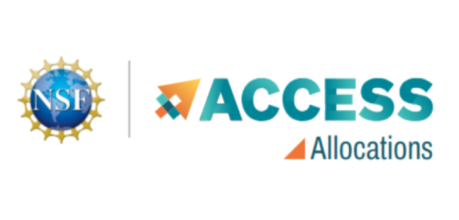
The window for submitting Maximize ACCESS proposals will close on Friday, Jan. 31. and awards will start April 1. From the Maximize ACCESS opportunity that closed last September, the Allocations team awarded nearly 1.6 billion CPU hours and more than 4 million GPU hours to 90 projects. The average project received 90% of the resources requested, and the current portfolio of ACCESS-allocated resources has room to award even more time to meritorious proposals. Information on preparing a successful Maximize ACCESS proposal can be found on the Allocations website.
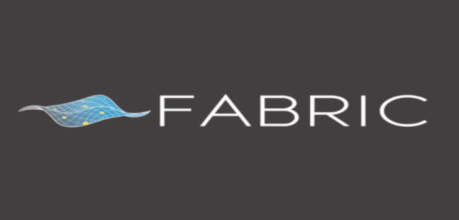
FABRIC, a unique resource in the NSF cyberinfrastructure ecosystem, is now part of ACCESS Resource. FABRIC is an internationally distributed set of equipment at commercial colocation spaces, labs and campuses. Its mission is to “explore impactful new ideas that are impossible or impractical with the current internet,” and its infrastructure enables cutting-edge experimentation and research at scale. Each node offers significant compute and storage, and all are interconnected by high-speed, dedicated optical links.

ACCESS now includes the Derecho system as an option for Explore ACCESS and Discover ACCESS projects. Derecho is the flagship supercomputing system at the National Science Foundation (NSF) National Center for Atmospheric Research (NCAR). Installed in 2023, the system is used annually by more than 1,500 researchers in the Earth system science community.
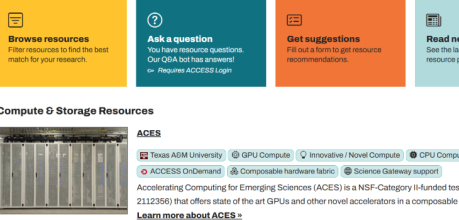
ACCESS Allocations introduces its new and improved Resource page, formerly called the Resource Catalog. The page is a one-stop shop for anyone seeking information on the resources available through ACCESS.
The page’s top navigation organizes information into four boxes at the top of the page:
Research Computing personnel from Purdue will observe the university winter break from 12:00am EST on Monday, December 23rd, 2024, and will resume normal business hours on Thursday, January 2nd, 2025. During this time, Anvil computing services will continue to be available, but all staff will be on leave.
Research Computing staff members will monitor the status of all computing and data resources in an effort to ensure continuous availability.
Seeking researchers, educators, graduate students, Resource Providers, and general community members for website user testing after January 1! Eligible participants could earn up to $1,000 in CCEP funding.

The Sage Edge Computing Platform is no ordinary CPU, GPU or storage resource, but a unique platform, a “new kind of national-scale cyberinfrastructure to enable AI at the edge for science.” The ACCESS community can learn more about Sage in the ACCESS Resource Catalog under “Northwestern U Sage Edge Computing Platform.” Sage is a distributed, intelligent sensor network that enables researchers to explore AI techniques to better understand natural and built environments. Throughout vast areas that span the U.S.

The next window for submitting Maximize ACCESS proposals will open on Thursday, Dec. 12 and close on Friday, Jan. 31, 2025. Awards will start April 1, 2025. From the Maximize ACCESS opportunity that closed in September, the Allocations Team awarded nearly 1.6 billion CPU hours and more than 4 million GPU hours to 90 projects. The average project received 90% of the resources requested, and the current portfolio of ACCESS-allocated resources has room to award even more time to meritorious proposals. |

The next window to submit Maximize ACCESS applications opens on Dec. 15 and closes on Jan. 31, 2025. The next review meeting will be held in March 2025. For instructions on how to apply, please review the Prepare Requests webpage, which includes two training videos. The Allocations team will also hold two live training webinars on Thursday, Dec. 12 at 2 p.m. Eastern Time, and Tuesday, Jan. 25 at 2 p.m. ET. When you're ready to submit your request, please do so at the link below. |

During the previous round of submissions, ACCESS received 91 Maximize ACCESS proposals submitted by 58 Principal Investigators from across the U.S. The most heavily-represented fields of science were: biophysics, materials engineering, condensed matter physics, particle and high-energy physics, and astronomy and planetary sciences. |
The National Artificial Intelligence Research Resource (NAIRR) Pilot User Experience Working Group is seeking input in an upcoming workshop on artificial intelligence with travel support available to attendees.
We are pleased to announce that we are accepting applications for the 2025 CyberPowder Fellows Program, an NSF-funded wireless networking hands-on training and research mentoring program for US-based graduate students.
The CDS-Exchange Community Fellows program aims to support educators in creating and sharing cutting-edge instructional resources that integrate computational and data science approaches across fields. The focus for this year’s cohort will be data visualization techniques. Selected fellows will receive funding, training, and mentorship to develop open educational materials that can be widely disseminated to fellow instructors in the CDS community.

GOOD 2025 is the inaugural global community conference of users and developers of Open OnDemand. GOOD 2025 is a three-day, in-person conference on March 18-20. We invite all community members to submit proposals to the GOOD conference. Whether you're a seasoned presenter or this is your first time submitting, we encourage everyone to contribute to the event.
Provide feedback on proposed improvements to help users better explore the full range of offerings from ACCESS. If you are a new or potential user of ACCESS resources for research or education, we invite you to participate in a short survey and an online meeting (during the week of October 7, 2024) to share your thoughts and feedback in exchange for a complimentary conference registration of their choice, valued at up to $1,250.
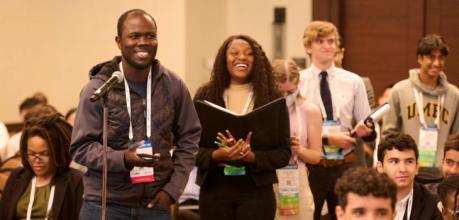
This year, ACCESS is a proud sponsor of the Tapia Conference, the premier venue to acknowledge, promote and celebrate inclusion in computing. If you plan to attend the conference in San Diego, Sept. 18 – 20, come see ACCESS at the Town and Country Resort, booth #622. The Tapia Conference, named for the internationally known computational scientist and mathematician Richard A. Tapia, brings together professionals from all backgrounds, ethnicities, ability levels and gender identities to connect, converse and collaborate. |

Attention students and educators: With the fall semester underway, keep in mind that ACCESS resources are available for students, instructors and classroom projects. |
Researchers at the University of Chicago are examining how HPC users and facilities can reduce the amount of energy they consume. As part of this work, we are looking for participants for a survey on the energy awareness of users in the HPC field. Anyone who uses HPC resources is eligible, so it would be great for members of the ACCESS community to participate.
The study is accessible with the following link: https://uchicago.co1.qualtrics.com/jfe/form/SV_elWWDCm6OdhzaTk.

As you kick off the fall semester, don’t forget about ACCESS resources—they’re perfect for your classroom projects. ACCESS Explore is ideal for smaller classes or training sessions. Plus, grad students can be the lead on these projects! If you need something bigger, check out ACCESS Discover. These allocations are great for larger groups and offer more resources. You can apply for both types anytime, and you can submit multiple requests.

OpenInfra Days are annual events organized by local User Groups and companies, typically lasting one or two days and featuring keynotes, breakout sessions, and workshops. The first OpenInfra Days North America, hosted by Indiana University, is being organized by participants from the United States, Mexico, and Canada. We encourage involvement from users and companies from these countries and hope to have lively networking and community-building from within North America.
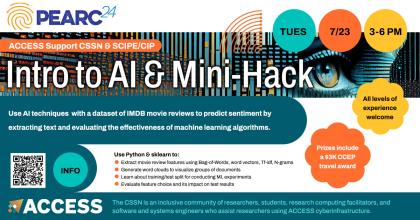
Join ACCESS Support and members of the SCIPE/CIP teams for an introduction to AI and fun "Mini-Hack" with prizes and a 3k travel grant award. This event caters to the conceptual level (true beginner with little knowledge/experience) up to the more expert level. Students are welcome and encouraged to join us.

Are you remembering how to cite ACCESS in your research papers?
To ensure continued support for the NSF-funded cyberinfrastructure ecosystem, researchers are required to properly acknowledge the contribution of the ecosystem in their papers, presentations and other published works.
Papers, presentations and other publications featuring work enabled by ACCESS should properly acknowledge the program’s contributions by citing this publication:
The ACM SIGHPC Education Chapter is seeking nominations for candidates for the 2024 Educational Award For Outstanding Contribution to Computational Science Education.
We are seeking candidates who have led projects or programs that have made significant contributions to computational science education defined broadly to include all disciplines and all education levels. The executive committee of the SIGHPC Education Chapter (Chair, Vice-chair, and Secretary-treasurer) and SIGHPC are not eligible for this award.
Nominations will be evaluated based on these criteria:
The Ookami team is pleased to announce the addition of two NVIDIA Grace CPU Superchips (144 Arm Neoverse V2 CPU cores with Scalable Vector Extensions (SVE2)).
The new nodes are now available to all Ookami users. If you are interested in using them, get an allocation on Ookami.
ACCESS Support is pleased to present an opportunity for you, your team, or your institution to host a FREE full-day or multi-day workshop for research computing workforce development! Workshop sessions can include both technical and non-technical. The workshop must take place between August 1 and November 15, 2024. The call for workshops will close on May 15, 2024.
The ACM SIGHPC Education Chapter is seeking nominations for candidates for the 2024 Educational Award For Outstanding Contribution to Computational Science Education.
We are seeking candidates who have led projects or programs that have made significant contributions to computational science education defined broadly to include all disciplines and all education levels. The executive committee of the SIGHPC Education Chapter (Chair, Vice-chair, and Secretary-treasurer) and SIGHPC are not eligible for this award.
Nominations will be evaluated based on these criteria:
We recently updated CI Links with an improved interface to help you discover useful training and learning resources. CI Links are a collection of useful information, videos, tutorials, and training curated by the community to develop skills in high performance computing and learn about CyberInfrastructure.
Consider submitting a tutorial proposal for SC’24, Atlanta, 17-22 Nov 2024. SC Tutorials is one of the largest tutorial programs at any computing-related conference. These high-quality tutorials are a highlight of the SC Conference.
The NSF is requesting information about potential AI research and education use cases for infrastructure shared through the National Artificial Intelligence Research Resource (NAIRR).
Join NVIDIA’s Deep Learning Institute (DLI) this February for a series of free, virtual instructor-led workshops providing hands-on experience with GPU-accelerated servers in the cloud to complete end-to-end projects in the areas of Generative AI and Large Language Models (LLMs). Each of these workshops are led by a DLI Certified Instructor and offer an opportunity to earn an industry-recognized certificate of competency based on assessments to support your career growth.
Learn more about the Ookami cluster (CPU only)
Whether you need computational resources and consider getting an account, you are a new user just getting familiar with the system, or a longtime user, who wants to optimize their usage, this webinar is for you!
It will cover the basics of the system, what it's best suited for, a lot of tips and tricks on how to use it efficiently, and instructions on how to get an account.
The ByteBoost team is thrilled to announce the launch of the ByteBoost Cybertraining Program. This groundbreaking program is driven by the imperative to enhance researchers' proficiency and productivity when navigating cutting-edge, specialized computing technologies. By offering experiential learning opportunities on modern computing technologies, ByteBoost will empower researchers to make the best computing choices in the ever-changing landscape of computational technology.
On 01/31/2024 at 4pm, the queues for Stampede2 closed permanently.
Jobs that are already in the queue will complete their runs. No new jobs will be accepted.
Stampede2 login nodes will remain up so that you may continue to transfer data to Stampede3: https://docs.tacc.utexas.edu/hpc/stampede3/#migrating
If you would like to request an allocation on Stampede3, you may do so here: https://allocations.access-ci.org/
We are thrilled to announce the launch of the ByteBoost Cybertraining Program. This groundbreaking program is driven by the imperative to enhance researchers' proficiency and productivity when navigating cutting-edge, specialized computing technologies. By offering experiential learning opportunities on modern computing technologies, ByteBoost will empower researchers to make the best computing choices in the ever-changing landscape of computational technology.
Hello all,
We are pleased to announce we have opened up the login nodes for the new Stampede3 system, to allow you to begin the migration process.
At this time functionality is still limited; the new storage system and updated software stack are now available, but the only compute nodes available for running jobs are a few of the old Stampede2 “SKX” and “ICX” nodes (the login nodes do have the new Sapphire Rapids chip).
Purdue Research Computing personnel will observe the university winter break beginning on December 22nd, 2023, and will resume normal business hours on January 2nd. During this time, Research Computing services will continue to be available, but all staff will be on leave.
Critical system outages will be dealt with should they occur during this time. Other support needs will be handled when the University re-opens on January 3rd.
Have a wonderful break, everyone, and we look forward to great things in the new year!
Over the next few months, Stampede2 will transition to Stampede3. In order to ensure this transition is as smooth as possible, please carefully read this announcement.
Future High-Performance Computing Experts: Are you ready to elevate your skills in scientific computation, parallel programming, machine learning and artificial intelligence? Are you a graduate student or early-career postdoc? Will your research involve large-scale computations? Are you eager to join a global community of HPC practitioners? The IHPCSS 2024 is in the planning phase, and needs your help in making it a reality.

HuBMAP is offering a paid summer research experience where undergraduate students from underrepresented backgrounds will be placed in HuBMAP labs across the country. The internship program provides a fantastic opportunity to learn an exciting new area of biology, build connections, gain valuable scientific skills, and conduct research in single cell biology.
The Platform for Advanced Scientific Computing (PASC) invites minisymposium submissions for PASC24, co-sponsored by the Association for Computing Machinery (ACM) and SIGHPC, which will be held at ETH Zurich, HCI Campus Hönggerberg, Switzerland, from June 03 to 05, 2024. The deadline for submitting an expression of interest is Oct 21, 2023.
One year into the new NSF ACCESS program, Globus and ACCESS continue to work together to simplify the data management experience in the nation’s premier open science computing environment.
The PEARC Steering Committee is now accepting nominations for steering committee members at large as well as the 2025 conference general chair. Please consider who you might nominate for these roles and help us spread the word within your communities!
Pittsburgh Supercomputing Center (PSC) is soliciting the next round of proposals for computer time on Anton 2, a special-purpose supercomputer for molecular dynamics (MD) simulation designed by D. E. Shaw Research (DESRES). Anton 2 enables biomolecular simulations running nearly 100 times faster than the state of the art on traditional supercomputers. Anton 2 is made available without cost by DESRES and supported by NIH for non-commercial research use by universities and other not-for-profit institutions. Proposals are due on Thursday June 29, 2023.
Exciting news for students interested in research computing and data science! The application deadline for the Student Program at PEARC23 has been extended by two weeks until May 15.

Since 2017, PEARC (Practice & Experience in Advanced Research Computing) has been the premier place for the real nuts and bolts of research computing, welcoming scientists, operations, students and vendors alike. Volunteering for the PEARC leadership committee is an exciting opportunity to make an impact and serve the community. Whether you have served on the committee before or are looking to join the committee, we would be excited to hear from you.
Dear Bridges-2 users,
Bridges-2, including all VMs and filesystems, will be unavailable due to scheduled maintenance Wednesday, April 26 8:00AM-5:00PM Eastern Time.
The slurm queue will be preserved and queued jobs will begin running once the machine has returned to service.
Please direct any questions to help [at] psc.edu (help[at]psc[dot]edu) and our team will be happy to assist you.
Thank you,
Bridges-2 Team
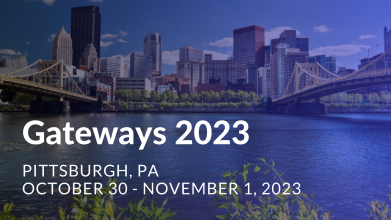
Gateways 2023 is an opportunity for science gateways to showcase their ability to teach, empower and engage research, and provide technologies to various communities. It will also offer diverse options for sharing work and networking in the community. Presentations, demos, panels, and tutorials are due June 5, 2023. BYOP - Bring Your Own Portal and poster submissions are due August 7, 2023.
The AI and Big Data team at the Pittsburgh Supercomputing Center is pleased to announce that the Neocortex Spring 2023 Call for Proposals is now open. Proposals are welcomed for access to Neocortex, an innovative and exciting NSF-funded AI supercomputer.
The National Science Foundation-funded AI Institute for Intelligent Cyberinfrastructure with Computational Learning in the Environment (ICICLE) is now accepting applications for its 2023 Educational Fellows Program.
For researchers with the largest-scale computational, analysis, and storage needs, requests for Maximize ACCESS allocations can be submitted during the period of March 15 - April 15. Approved allocations will begin or renew on July 1, 2023.
Summer Internships at the Texas Advanced Computing Center (TACC)! Eligible applicants include graduate students majoring in computer science or computer engineering (or related fields). The student will be funded by SGX3 to join the TACC science gateway team for the summer, working on live, impactful gateways. The program will run from June 5 - August 4, 2023.

The Rosen Center for Advanced Computing (RCAC) is seeking participants for our Anvil Research Experiences for Undergraduates (REU) program. This is a paid internship program for students that will take place during the summer of 2023. We would appreciate your help identifying interested students and relaying this message to them.
Delta Resource Users,
The National Center for Supercomputing Applications (NCSA) will observe the University of Illinois winter break schedule starting Thursday, December 22nd, 2022, at 5:00pm CST, through 8:00am CST on Tuesday, January 3rd, 2023.
NCSA staff will monitor the operational status of Delta as well as service request systems during the holiday period with best-effort level of service. Non-critical issues and questions will be addressed starting Tuesday, January 3rd, 2023.
Rosen Center for Advanced Computing personnel will observe Purdue University's winter break from 5:00pm EST on Thursday, December 22nd, 2022, and will resume normal business hours on Tuesday, January 3rd, 2023.
During this time, Anvil services will continue to be available, but all staff will be on leave.
Pegasus is now part of the ACCESS support strategy, including a hosted Pegasus environment for all ACCESS users. On September 1st, the XSEDE project transitioned to ACCESS. Support under this new project will be provided in a tiered manner, with the lower tiers providing easy to use self-serve tooling. Pegasus is one of these tools, enabling ACCESS users to run high throughput workloads across multiple ACCESS resources.
DELTA Resource Users,
We apologize for any duplication.
We are happy to announce that the National Science Foundation approved the transition of DELTA to full production. The official start date of production will be September 19th, 2022. Please be aware that computational usage by jobs on DELTA ending after Noon (Central Time) Monday, 9/19/22 will be charged against your allocations.
Note that ACCESS awards can be managed on DELTA at https://allocations.access-ci.org/requests.
Parallel Computing Concepts
Wednesday, September 14, 2022
11:00 AM – 12:00 PM PDT
Instructor: Robert Sinkovits, Director of Scientific Computing Applications, SDSC
Please register at https://na.eventscloud.com/2022-09-parallel-computing-concepts
Update 1
SDSC is seeking a small number of researchers interested in exploring the NSF-funded AI supercomputer, Voyager, which is currently in the testbed phase at the San Diego Supercomputer Center. Voyager is based on Intel’s Habana Lab AI processors and provides a unique opportunity to use AI focused hardware for exploring AI in science and engineering.
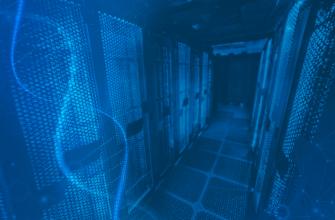
A diverse community of researchers will soon be able to review new research computing opportunities available through the Advanced Cyberinfrastructure Coordination Ecosystem: Services & Support (ACCESS). Allocations will be made via the Resource Allocations Marketplace and Platform Services (RAMPS) team. While the new ACCESS presence is being developed, researchers, instructors and others who are interested are welcome to provide feedback on the basic information provided here and consider how they might participate.
Update 1
The following sentence in our recent announcement needs clarification:
- "XSEDE support for Globus and Grid Community Toolkit client software, including the myproxy, gsi-openssh, and globus-url-copy commands, will end. "
XSEDE will no longer support the Globus Toolkit client software, and the Grid Community Toolkit client software, which provide the legacy commands myproxy-init, myproxy-logon, gsi-openssh, and globus-url-copy.
Filter Announcements
Posting Announcements
Do you have an announcement to share with the ACCESS community?